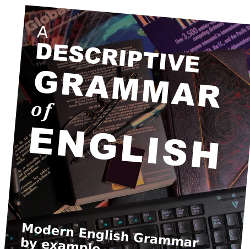

Successful Grammar Teaching
Six golden points to rememeber
by Andrew Rossiter
Following the huge response to the previous post in this series, The thirty key words for teaching grammar, here is another short post listing six fundamental considerations that can help teachers achieve success with the teaching of English grammar.
- Importance: Teaching grammar is not an optional extra. Grammar is the architecture of language, and without grammar skills speakers or writers cannot progress to anything more sophisticated than basic communication.
- Literacy: Grammar is as essential for the development of literacy skills, as learning about division and multiplication is for the development of numeracy. And who would ever question the wisdom of teaching multiplication and division, even at an early age?
- Simplicity: The basic grammar and syntax of English are fairly straightforward, since English does not have all the multiple grammatical endings of "synthetic" languages like Spanish or Russian or Arabic.
- Terminology: Except at advanced levels, the rules and principles of English grammar can be explained using a fairly limited list of terms.
- Confidence: For the successful teaching of grammar, it is vital that the teacher be able to talk confidently about grammar and explain essential points in simple terms so that students understand what they are learning. Grammar that is just taught and memorized is grammar that is easily forgotten; grammar that is explained and learnt has a much longer shelf life.
- Attitude: Perhaps the most fundamental
condition for success in grammar teaching is for the teacher to take a
can-do attitude, be
positive about
it, not negative. Using complex terminology will demotivate many
students; using simple terminology encourages understanding and
motivation – and that is what successful teaching is all about.
 Discover
A
Descriptive Grammar of English, by Andrew Rossiter (2020 -
updated 2023).
Discover
A
Descriptive Grammar of English, by Andrew Rossiter (2020 -
updated 2023).
Recommended by IATEFL Voices magazine, ELT Magazine and others...
Grammar cannot be successfully taught unless the teacher understands it in the first place.Recent research in the UK has shown that a large number of English teachers are not at all confident about teaching grammar !
This new compact reference grammar is a clear and simple guide to help teachers and their students understand and so become more confident with English grammar.
Giving priority to examples and simple rules, Andrew Rossiter's A Descriptive Grammar of English (2020) has been enthusiastically welcomed as a teaching aid by leading ELT publications, including EFL Magazine and IATEFL's Voices magazine
Available worldwide from Amazon and from major bookstores worldwide, including Blackwells, Barnes & Noble and others. For more details see Descriptive Grammar.
Related item: The five fundamental principles of English grammar
Website
and texts © Linguapress.com 2009 - 2025 except where otherwise
indicated
Contact: Use the form on our get in touch page
Contact: Use the form on our get in touch page
 Copyright
information.
Copyright
information.